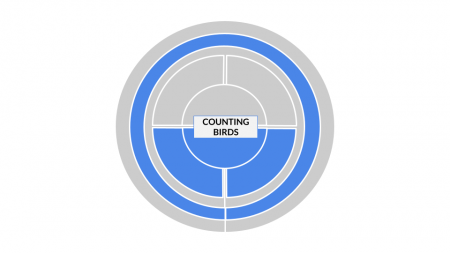Difference between revisions of "Counting Birds"
From Sustainability Methods
Oskarlemke (talk | contribs) |
Oskarlemke (talk | contribs) |
||
| Line 18: | Line 18: | ||
'''Table 1. The use of the methods territory mapping, point counts and line transects for different groups of birds (modified after Sutherland 1996).''' These methods were selected because they can be applied to most bird species. | '''Table 1. The use of the methods territory mapping, point counts and line transects for different groups of birds (modified after Sutherland 1996).''' These methods were selected because they can be applied to most bird species. | ||
| − | *=method usually applicable , +=method often applicable. | + | '''*'''=method usually applicable , '''+'''=method often applicable. |
{| class="wikitable" | {| class="wikitable" | ||
Revision as of 09:06, 8 May 2023
| Method categorization | ||
|---|---|---|
| Quantitative | Qualitative | |
| Inductive | Deductive | |
| Individual | System | Global |
| Past | Present | Future |
In short: Territory mapping, point counts and line transects are key methods for counting birds. They are suitable for many different groups and species of birds. Additional methods can be found in Sutherland (1996).
Table 1. The use of the methods territory mapping, point counts and line transects for different groups of birds (modified after Sutherland 1996). These methods were selected because they can be applied to most bird species. *=method usually applicable , +=method often applicable.
| Territory Mapping | Line transects | Point counts | |
| Waterbirds | + | + | + |
| Seabirds | * | + | |
| Wading birds | + | + | |
| Raptors | + | + | |
| Gamebirds | + | + | |
| Near passerines | + | + | + |
| Passerines | * | * | + |
The author of this entry is Anna-Lena Rau.
